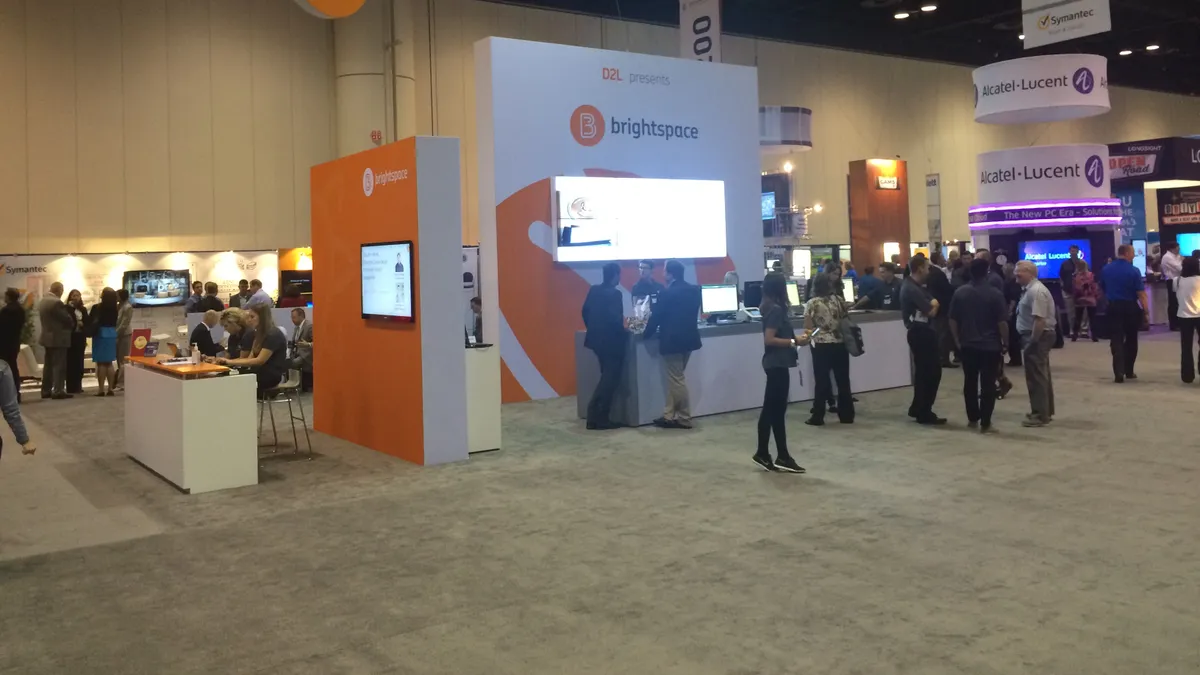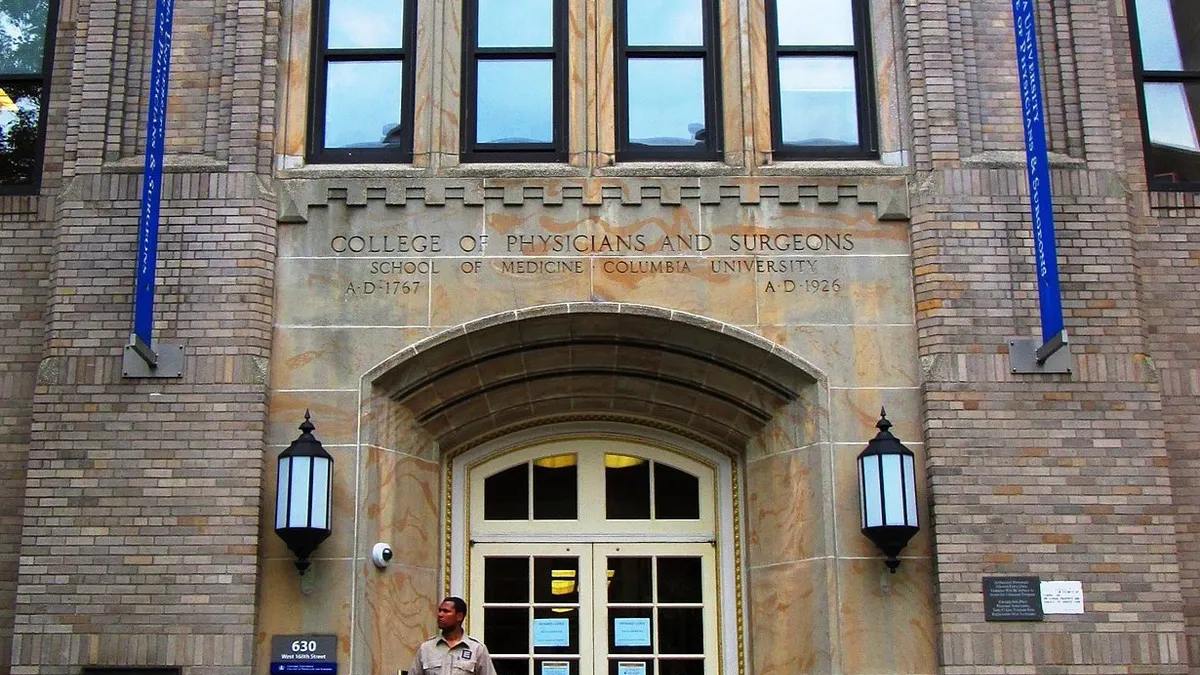Dive Brief:
- D2L on Tuesday unveiled the next generation of its Brightspace learning platform, which places a particularly increased focus on adaptive learning.
- The ed tech company's adaptive learning engine, LeaP, utilizes an adaptive learning algorithm and a semantic mapping algorithm. Driving home D2L's commitment to adaptive and game-based learning, CEO John Baker said in a press release that the company wants to help its clients reach a national goal of achieving a 60% graduation rate by 2020.
- Also highlighted in the latest version of Brightspace: a more intuitive user interface for faculty that includes drag-and-drop course creation, OpenDyslexic Font for increased accessibility, Microsoft Office 365 integration, a streamlined process for importing content, and easier integration.
Dive Insight:
"We want to work with customers, partners, and anyone that cares about education, including other EdTech leaders, in accomplishing this," Baker, who recently participated in a panel on closing the graduation gap at the Milken Institute Global Conference 2015, said in the release. "Today’s release offers adaptive and game-based learning technologies to learners globally, bringing us closer to reaching the goal."
The D2L also shared additional information on the new release with Education Dive during a recent visit to our offices. During the conversation, he noted how adaptive learning "has been sort of like this mystical box that only the elite publishers could access and use, very similar to when computers first came out and you had these big implementations, but it wasn’t something that everyone used or could even think about how they could use it."
D2L, he added, wants to make it easier for every teacher and student to leverage adaptive and create personalized learning pathways. The platform also includes the latest version of the company's educational gaming engine, which features branching scenarios — though users will still have to manually set up those branches for now.
Simply put, with this latest release, Baker said, D2L is moving to increase adaptive learning software's affordability, flexibility, and ease of use while lifting average students to "A" and "B" level.










